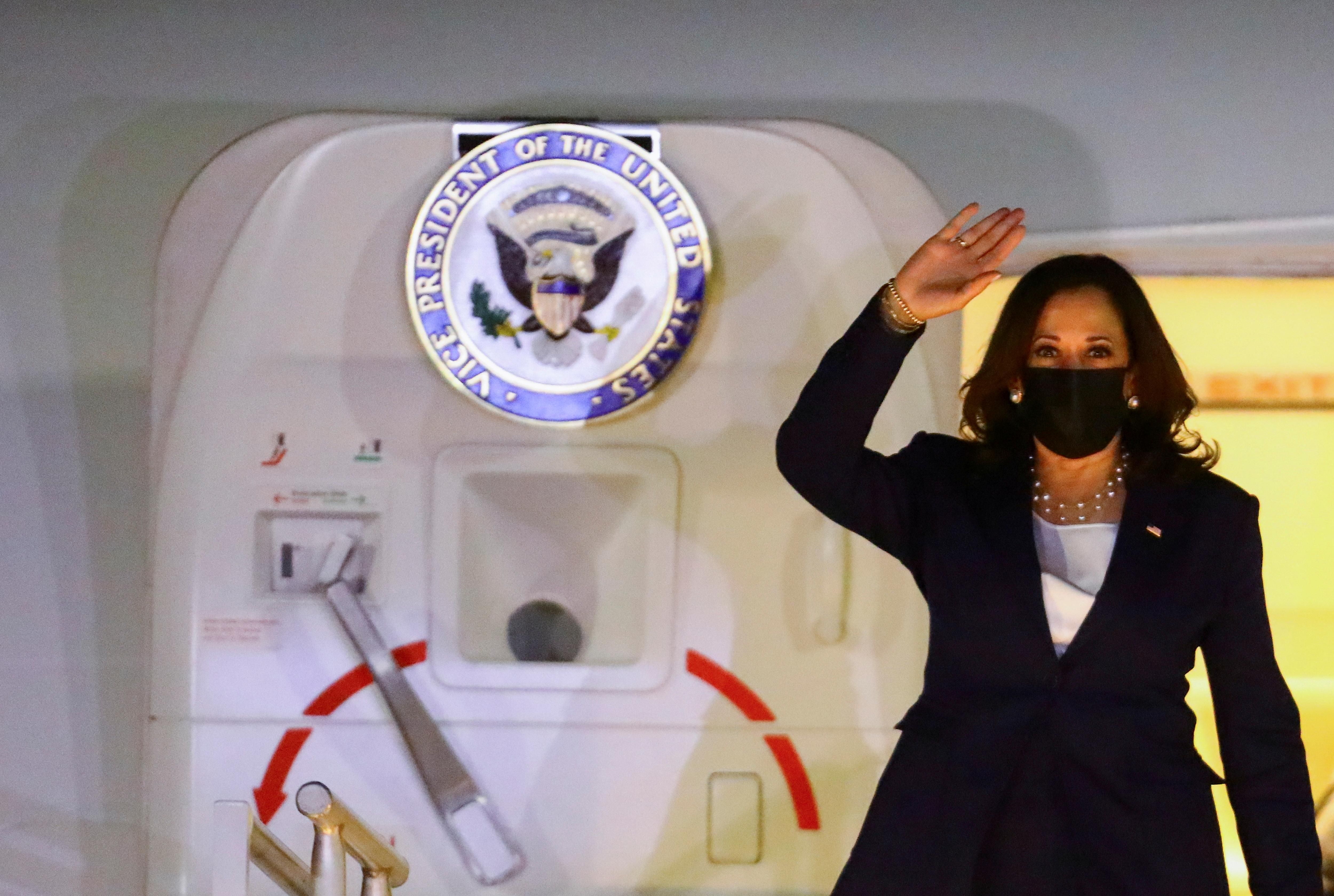News
June 08, 2021
VP Harris tours Central America: US Vice President Kamala Harris this week embarked on her first official foreign trip since assuming that role, making stops in both Mexico and Guatemala. After immigration became a major political headache for the Biden administration, with Central American migrants arriving at the US-Mexico border in historic numbers in recent months, Biden tapped Harris to oversee issues related to the root causes of mass migration from Central America (which he distinguishes from the so-called "border crisis''). Harris, for her part, has been pushing the US private sector to invest more in the Northern Triangle countries — Guatemala, Honduras, and El Salvador — that are plagued by corruption and crime, and account for the bulk of migrants arriving at the US' southern border. Harris has also engaged in vaccine diplomacy to shore up support, announcing that the US will ship COVID vaccines to both Guatemala and Mexico. Immigration is a massive electoral problem for President Biden, with polls suggesting that 48 percent of Americans disapprove of his handling of the issue. Harris is trying to fix that. But analysts say that this trip is also an opportunity for the VP to bolster her own foreign policy bonafides as she looks at a future presidential run.
Global crime ring duped: More than 800 alleged members of an international crime syndicate have been arrested in a global sting operation coordinated by Australia, Europol, and the FBI. How did they get busted? Law enforcement authorities tracked their nefarious plots involving drug smuggling, money laundering and even murder on ANOM, a secret messaging app that the crooks believed was untraceable. The whole operation was a ruse coordinated by the FBI, which had its informants distribute customized devices loaded with the app following an earlier crackdown on similar encrypted messaging services. Indeed, the operation reveals that cooperation among law enforcement agencies on different sides of the globe can be more successful at times than direct coordination between the governments that oversee them, especially when it's about fighting transnational crime. More broadly, we'll be keeping an eye on how the same agencies might work together to combat cyberattacks, which have risen significantly in recent months and overwhelmingly target national governments and private corporations.
More For You
- YouTube
Sovereignty has become one of the most powerful, and least defined, words in tech policy. At the 2026 Munich Security Conference, SAP global head of government affairs, Wolfgang Dierker, explains why governments and enterprise customers are demanding more control over their data, cloud infrastructure, and AI systems amid rising geopolitical uncertainty.
Most Popular
TODAY at 12 pm ET: Watch our Global Stage live premiere from the Munich Security Conference
Feb 13, 2026
Tune in today at 12pm ET/6pm CET for the live premiere of our Global Stage from the 2026 Munich Security Conference, where our panel of experts takes aim at the latest global security challenges. NY Times National Security Correspondent David Sanger moderates the discussion with Benedetta Berti, Secretary General, NATO Parliamentary Assembly; Ian Bremmer, President & Co-founder, Eurasia Group & GZERO Media; Dr. Wolfgang Dierker, Global Head of Government Affairs, SAP; and Brad Smith, Vice Chair & President, Microsoft.
- YouTube
Alina Polyakova, President and CEO of the Center for European Policy Analysis, warns that NATO faces a defining moment.
From the sidelines of the 62nd Munich Security Conference in Munich, Polyakova told GZERO's Tony Maciulis that the Arctic has become “an arena of incredible global competition,” with Russia and China expanding their ambitions. While President Trump’s focus reflects “the right instincts” on security, she argues allies must strike a mutual deal to secure the region together.
- YouTube
Ian Bremmer breaks down how Trump’s second term is reshaping American power — and what it means for the global order.
© 2025 GZERO Media. All Rights Reserved | A Eurasia Group media company.
